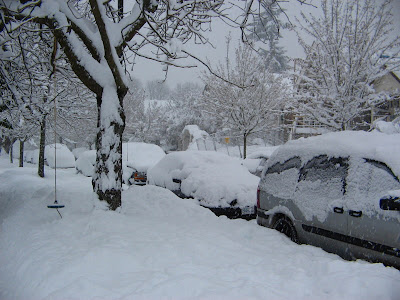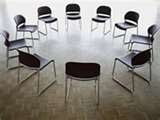I believe that this editorial tackles a central issue of our day. Please read it and then share your thoughts.
Free markets vs. socialism.
These are the old and useless ideas that still dominate too many in a world that is much too complex to survive such simplicities.
The unfettered free market and communism are both abominations.
Certainly there must be some creative fertile middle ground that, piece by piece, better serves us all.
A number of stories in today's news, each compelling enough in itself, bring us back to the same basic and difficult question; What is the role of government in a democratic society?
It is easy enough to say, "Pave the roads, send the fire trucks, flush the sewage and pay the police; otherwise leave us alone." For the Henry David Thoreau in all of us that's a pleasant fantasy based on a long-gone rural, small town ideal. And, as one of today's stories reveal, accomplishing even these simple tasks is more complicated than it may first appear.
It is equally facile to declare, "We are our brother's keeper and we must as a government cover everybody for all possible eventualities - life and death insurance, complete and total medical and health coverage for every imaginable ailment or disease, day-care for the young and the elderly, homes for the indigent, and a Game Boy under every Christmas tree."
Life and government are, of course, more nuanced than either of these didactic world views will permit.
STORY ONE
The cover story in today's ROB in the Globe is a must read. It is titled "How it All Began," and it is a thorough examination and tracing of how home ownership in the United States went in a few decades from the universal dream to a screaming nightmare.
Well into the article - the first of a two-parter, by the way - comes this key moment:
"For instance, why were investment banks allowed to borrow massive amounts of money to make risky bets? How could a shadow banking system, one ten times bigger than the Canadian economy, be allowed to flourish so quickly without any oversight from government regulators? Why were credit rating agencies stamping dubious products with their approval? And how could homeowners with poor credit histories or zero documentation, let alone jobs, qualify for mortgages?
In its haste to hand Americans a villain, Washington had failed to look to itself."
Reagan and Carter, two very different presidents with two very different agendas and legacies, both enabled the current debacle with de-regulation in the financial and banking sectors.
This not to blame either. Rather, it is to ask what role does a government in a modern democracy have in controlling risks and protecting its citizens?
The old saw that the market will take care of itself is lying broken and crushed world-wide today. Don't we as a body politic have some duty to say what we will and will not allow business to do, to at least define some outer limits? We do this with citizens. Why not with corporations and companies, with entire industries?
Of course, massive conglomerates have been split by government decree, lending limits have been set from time to time. But it must now be clear that simply allowing men in suits to do what they want when they want to whomever they want can only have the most disastrous results.
As an investment counsellor friend said to me the other day, "The market is driven by only two things. Always has been and always will. Greed and Fear."
STORY TWO
Canada's emergency 911 telephone system doesn't work.
See the front page story in today's Globe, "Canada's 911 Emergency." Here's the subtitle:
A dispute over who should pay to fix outdated emergency dispatch systems is delaying a solution for slow response times — and costing lives.
The current system doesn't work well enough, often enough because most Canadians have cell phones and the cell phone companies are not yet adequately equipped to respond to phones that wander about, or Internet based phones that don't have a home address.
They could be so equipped, but the CRTC gave Internet and cell companies lesser 911 requirements than traditional phone companies.
Why?
Why not be a real government and demand high standards of citizen protection from all providers?
Cell phones and cell phone shops and kiosks are ubiquitous. You can't escape them. The companies are making a lot of money.
Don't we have the right as a body politic to demand that they provide basic emergency service?
STORY THREE
In spite of the all the good intentions of various civic leaders who cannot wait for a foto op to show us their beating hearts of concern, a homeless woman died last night on our city streets. She burned to death by lighting a single candle to try to keep warm in this most bitter of remembered winter cold spells.
For me, the key moment in the tale of this tragedy was this:
"Police had visited the woman, known on the street as Tracey, three times to offer her shelter. Each time she refused."
Now this very same issue arose in the most recent reports over the past few days about trying to help the homeless. I say issue even though no one discusses what I think is an issue. The police and others who are trying to help routinely report that they ask the homeless person if he or she would like to come to a shelter for the night.
Why do we ask?
Because of the Charter?
Because we firmly believe that it is an individual's right or entitlement to freeze to death or burn to death or starve to death on our public streets?
Is it not conceivable that some people cannot judge at some moments in their lives what is the best course of action and that we as a government occasionally intervene?
Oh, yes, I know this is a gigantic theoretical slippery slope. Soon, the police will be scooping Jews and Blacks and Gays and Commies and the left-handed off the streets because the current administration wants it so. Right.
Give your head a shake.
Even in the toughest of Hebrew Talmudic laws it is permitted to break any number of rules and covenants to save a life.
Because saving a life comes first.
So, you are freezing and starving on the street and you have a dog or a strong will for independence. If it's a lovely starry summer night, no harm, no foul. But if it is -15 and now your life is in imminent danger, I would rather pinch your so-called civic liberties to save your soul just this night.
Many years ago, local police could pick up a 13-year old and ask what he or she was going at Drake and Granville at 2 am. That cop might even drive the kid home. Imagine. How quaint.
Then, social agencies decided that those kids could only be there because the parents were abusive monsters. And they began giving those kids $400 to get a hotel room and some food.
You think the enormous rise in kids on the street happened by accident? It happened largely by changing social norms and changing social policy.
What about mandatory treatment for drug addicts?
It works as often as freely chosen treatment. It has for many many years all over the world.
But as a body politic we have a mental set that prizes Charter rights above life. We must never interfere with a fool's right and entitlement to destroy himself and our community at the same time. That wouldn't be nice.
Last night, if we had a different set of priorities, the police could have taken Tracey, willing or otherwise, to a warm and safe shelter. Who knows, she might even have grudgingly liked it. At least, she'd be alive to get herself a Legal Aid lawyer to sue the cops for assault.
There is no easy or simple answer to the depth and width that we will allow and invite governments into our lives.
But government has a role. Just as we must decide each day the degree to which we will get our shoes dirty stepping into the gutter of modern life, we must decide on a regular basis how, as a community, we balance the freedoms of the marketplace and individual's rights with the sometimes conflicting and larger good of the community as a whole.
If you are still stuck in the useless time warp cycle of pitting open markets against some bogeyman called socialism, you are not even in the discussion.
Market and rights of privacy live next door to my brother's keeper. We must figure out how to get along.











































